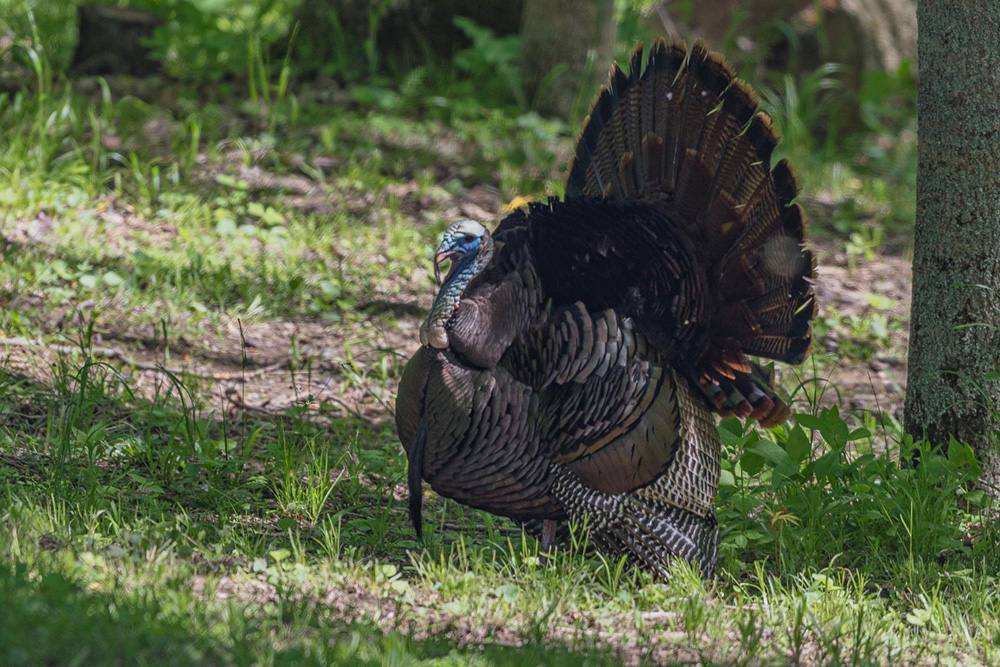The Art of Turkey Hunting in Orlando, FL



In the realm of hunting, the thrill of the pursuit is as old as time itself. Amongst all the game species, none embodies the essence of hunting quite like the wild turkey. These elusive birds, with their keen senses and a celebrated wariness for the hunter's approach, present a challenge that is as intellectual as it is physical.
Turkey hunting is an art form, and Orlando, FL, with its diverse ecosystem, is a canvas suited for masters of the craft. Before stepping into the wilderness, though, a hunter must prepare their palette with insightful strategies and techniques to make the most of their turkey hunting experience. This article is your guide, brimming with the sort of knowledge that turns a novice into a seasoned hunter.
Wild turkeys come in several subspecies, and understanding the nuances of the local breed is key to planning a successful hunt. In Florida, hunters typically pursue the Eastern subspecies, known for their dark, iridescent plumage and typically large fan tails, which serve as a camouflaged screen and a visual show of dominance and courtship.
Understanding turkey behavior is paramount. From the courtship struts of the males to the vigilant flocks of hens, each bird plays a role in the complex social structure. Mastering turkey calls—such as the yelp, cut, and cackle, for ladies, and the gobble for the male—can significantly enhance your ability to approach and harvest your target.
Preparation begins with scouting. Arriving early at your hunting site allows you to pick your spot, identify roosting trees, and learn the natural routines of the birds. Orlando offers a range of hunting areas, from public wildlife management areas to private ranches. Each site brings its own challenges and opportunities, and scouting will give you a head start in navigating these.
Time spent in the field evaluating daily and seasonal turkey patterns, including morning and evening feeding sites, midday loafing areas, and watering holes, is a wise investment. Trails of turkey tracks, scratchings, and droppings tell a story of where the birds have been and where they're likely to return.
To outwit a turkey requires patience, stealth, and a well-prepared arsenal. Much of the gear for a turkey hunt revolves around concealment and calling. A full camouflaged outfit that covers your body, hands, and face is essential, as is a good quality decoy—properly placed, a decoy can divert the attention of the bird while you prepare your shot.
Calls are the language of the hunt, and having a variety to replicate different behaviors will increase your versatility. Box calls, slate calls, diaphragm calls, and mouth calls all have their place. Beyond this, basic hunting gear such as a shotgun appropriate for turkeys, ammunition, a hunting vest, and a sharp hunting knife are also vital.
The strategy in turkey hunting is as varied as the tactics employed. The four methods for hunting turkeys are sitting and calling, stalking, hunting from a blind, and using dogs. Each method has its proponents and particular effectiveness depending on the turkey's behavior and environmental factors.
Patience is perhaps the most important trait a turkey hunter can possess. Waiting in a good location, softly calling, and allowing the turkey to come to you is often the most successful method. However, adaptability is also key—turkeys may not come every time, and being willing to move or try new calls can pay dividends.
Hunting, particularly with a species as sensitive as the wild turkey, carries both legal and ethical responsibilities. Understanding the local hunting laws, including hunting seasons, bag limits, and restricted areas, is imperative. Conservation is also a fundamental principle of hunting. Respect for the land, the wildlife, and your fellow hunters is the bedrock of ethical hunting practice.
When the moment arrives and you've taken your shot, follow through with good tracking practices. Mark the spot where you last saw the bird, and track the sign to locate it. Once your trophy is secured, be sure to properly field dress it and process the meat for consumption.
Fall and spring are the primary seasons for turkey hunting, with spring generally considered the best time for novice hunters. The bird's mating season—characterized by gobbling and strutting—is a prime opportunity for a hunt.
Orlando is known for its lush woodlands and wetlands, which harbor an impressive population of wild turkeys. However, with popularity comes competition, so consider your timing and tactics carefully to avoid the crowds and increase your chances of a successful hunt.
To excel at turkey hunting, certain skills must be honed. Sharp shooting is non-negotiable, but equally important is your ability to move through the terrain quietly and study animal behavior to anticipate your shot. A hunter must also develop a good sense of direction, as being lost in unfamiliar woods can turn a great hunt into a dangerous situation.
Many hunters opt to work with a professional guide, especially those new to the sport or the area. Guides offer a wealth of local knowledge, taking you directly to the best hunting spots and offering tried-and-true wisdom on turkey behavior and the lay of the land.
Ready to test your skills in the pursuit of the wild turkey? If you'd like to explore turkey hunts in Orlando, FL, contact Switchgrass Outfitters today for booking information. Remember, the successful turkey hunter is an amalgam of skill, knowledge, and respect for both the prey and the art of the hunt. May your shots be true and your hunts be memorable.